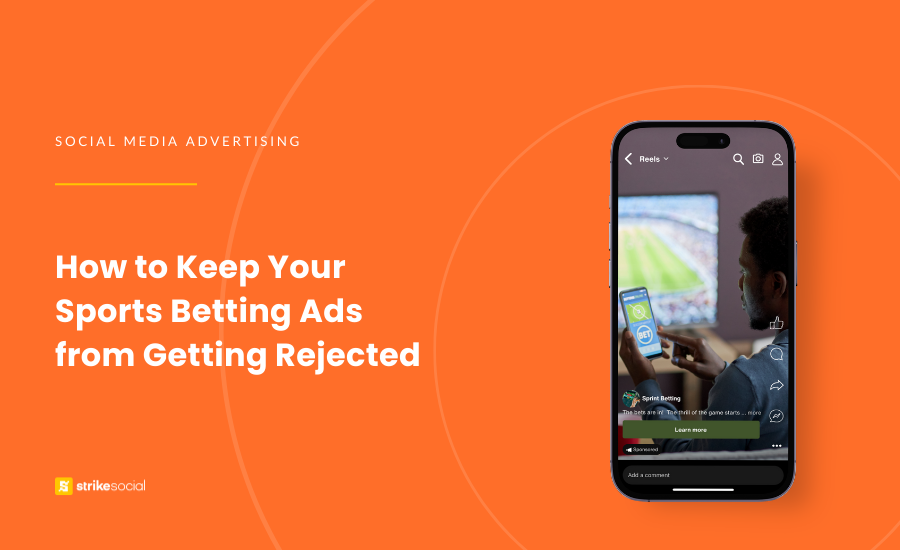Strike Overview
- Despite scrutiny surrounding sports betting ads, the industry remains steadfast. Legal bets in the U.S. soared to over $125 billion last year alone.
- According to the American Gaming Association (AGA), Americans spent $10.49 billion on sports betting during the 2024 Super Bowl, marking a 24.8% surge from the previous year.
- Yet even with these promising figures, many sports betting companies remain cautious about advertising on social media. Understandably so, given the constant change in gambling laws and advertising regulations. But shying away from this opportunity is not the answer.
- From preparation to launch and beyond, this guide will ensure your sports betting ads on social media run seamlessly, avoiding potential interruptions.
Jump to Section
This post was updated in January 2025 to provide you with the latest information.
What’s the State of Sports Betting Advertising Today?
Despite a 21% decline in 2023, sports betting advertising in the U.S. continues to experience significant growth. As of November 2024, the American Gaming Association (AGA) reports an 8.6% year-over-year (YoY) revenue increase for the commercial gaming industry, with sports betting specifically showing a remarkable 26.8% YoY growth. This brings sports betting’s share of the industry to 10.9%.
This upward trend is largely driven by the increasing number of U.S. states legalizing sports betting for adults aged 21 and above.
The addition of markets like North Carolina and Vermont, which have recently launched sports betting and now allow sports betting ads, has significantly boosted engagement.
Sports Betting Ads on Social Media
TikTok emerges as a prominent platform for engaging sports audiences with a remarkable 2.15% engagement rate, surpassing Instagram (0.75%) and Facebook (0.22%).
Social media’s influence extends further to sports gambling behavior, with celebrities and influencers increasingly utilized in advertising efforts. These personalities—sports journalists, former athletes, and betting experts—engage specific sports communities, offering targeted content and authentic interactions that resonate with audiences.
With these trends in mind, brands launching sports betting ads must consider how to capitalize on these insights to enhance their strategies.
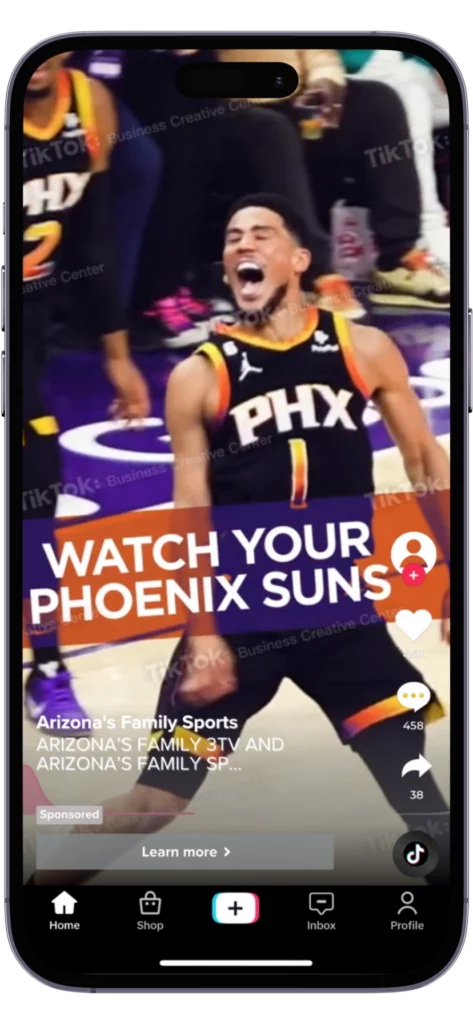
Preparing Your Sports Betting Ad Campaigns Before Launch
Launching sports gambling and betting ads requires complexities and adhering to specific constraints. Before you hit “publish,” we recommend reviewing this checklist to ensure your campaign is primed for success.
Audience Targeting
Sports audiences have undergone a significant transformation, partly propelled by notable events like the Taylor Swift effect during the Super Bowl. The 2024 NFL season saw record-breaking female viewership, including a 53% surge among teenage girls, a 24% increase among women aged 18-24, and a 34% rise among women aged 35 and older.
On platforms like Facebook and YouTube, sports-related content commands significant engagement rates. Sports teams lead the pack on Facebook with an average engagement rate of 0.27%, followed closely by influencers at 0.23% and higher education at 0.15%. Moreover, the projected surge in sports viewership on YouTube will reach 90 million by 2025.
Limitations: Media buyers must recognize the varying legal age requirements for gambling across different US states, with some jurisdictions prohibiting it altogether. We recommend setting the minimum age for sports betting ads at 21 to ensure compliance and maximize reach. Refer to the table below for state-specific regulations:
Location Targeting
For sports betting apps or websites seeking a global audience, especially during major occasions like the Olympics, you must assess the legal framework of the countries you intend to focus on. Each nation maintains its unique regulations concerning sports betting advertising.
Below is a summary of select countries and their positions regarding sports betting ads on YouTube. If a country is not included, it means that YouTube ads presently do not accommodate gambling ads in that jurisdiction.
For more detailed information on limitations in specific countries, click here.
Ad Platform Considerations
While you may have a preferred platform for advertising where your campaigns typically perform well, note that not all platforms permit sports betting ads on social media, and each has its own set of guidelines to follow.
TikTok, for instance, prohibits the promotion of gambling or any related activities. Meanwhile, on Meta platforms like Facebook and Instagram, advertisers must seek written permission and are prohibited from targeting sports betting ads to audiences under 18 years old.
There’s more flexibility on YouTube, as the platform allows the promotion of sites or content related to online gambling. However, advertisers must undergo Google certification before advertising sports betting apps or websites. If you want to promote sports betting apps or sites on YouTube, you can apply through Google’s official platform certification here.
Best Practices for Promoting Sports Betting on Social Media
After obtaining certifications and permissions and successfully launching your ads on your chosen platform, the next step is to ensure the continuity of your campaign. Here’s a closer look at potential issues that may arise mid-flight and how you can resolve them:
Disapproved Landing Page
- Problem: Your ad links to a landing page that violates platform policies, such as containing excessive gambling references or lacking responsible gambling resources.
- Resolution: Ensure your ad includes clear disclaimers, especially regarding age restrictions. Incorporate prominent visuals or audio reminders indicating that viewers must be of legal gambling age. Additionally, consider “pinning” a comment that outlines responsible gambling practices and resources associated with your brand.
Further Reading
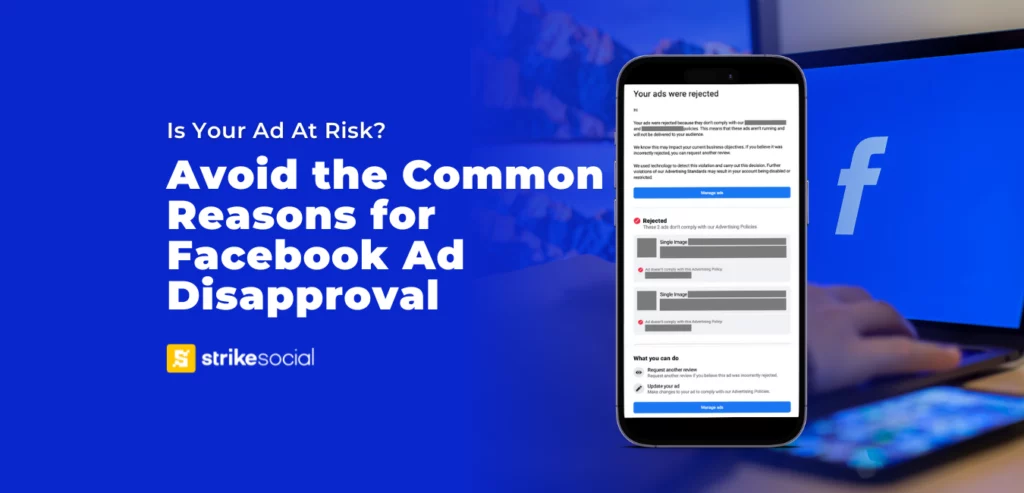
Why Facebook Rejects Your Ads (and How to Avoid It)
Facebook’s advertising platform enforces strict guidelines that all advertisers must adhere to. Learning the typical causes of ad rejection can help you avoid the lengthy and often frustrating appeals process.
Lack of Transparency or Misleading Claims
- Problem: Ads that lack transparency regarding odds, promotions, or terms of service or contain misleading claims may be disapproved of or restricted.
- Resolution: Avoid making exaggerated claims or omitting crucial information that could mislead users. Use clear and prominent disclosures to ensure transparency and foster trust with your audience.
Targeting Minors or Restricted Audiencces
- Problem: Targeting minors or audiences not permitted to participate in gambling activities.
- Resolution: Be mindful that legal gambling ages vary by state. Consider creating separate campaigns or ad groups targeting states with differing legal ages. For example, one campaign could target states with an 18+ legal age for gambling, while another focuses on states with a legal age of 21+ for online betting.
Policy Changes Mid-Campaign
- Problem: Your chosen advertising platform may implement new policies mid-campaign, restricting your ad content and leading to rejection or disapproval.
- Resolution: Subscribe to alerts or industry blogs to stay informed about platform policy changes. Quickly adapt your campaign creatives and targeting to comply with updated regulations. This proactive approach helps prevent disruptions and ensures the smooth progression of your sports betting app ads.
Assessing the Effectiveness of Gambling Ads in Online Advertising
When it comes to advertising sports betting on social media, it’s natural to be skeptical due to many restrictions and limitations. Will it be too expensive? Can it achieve the same reach and efficiency? Let’s examine this further.
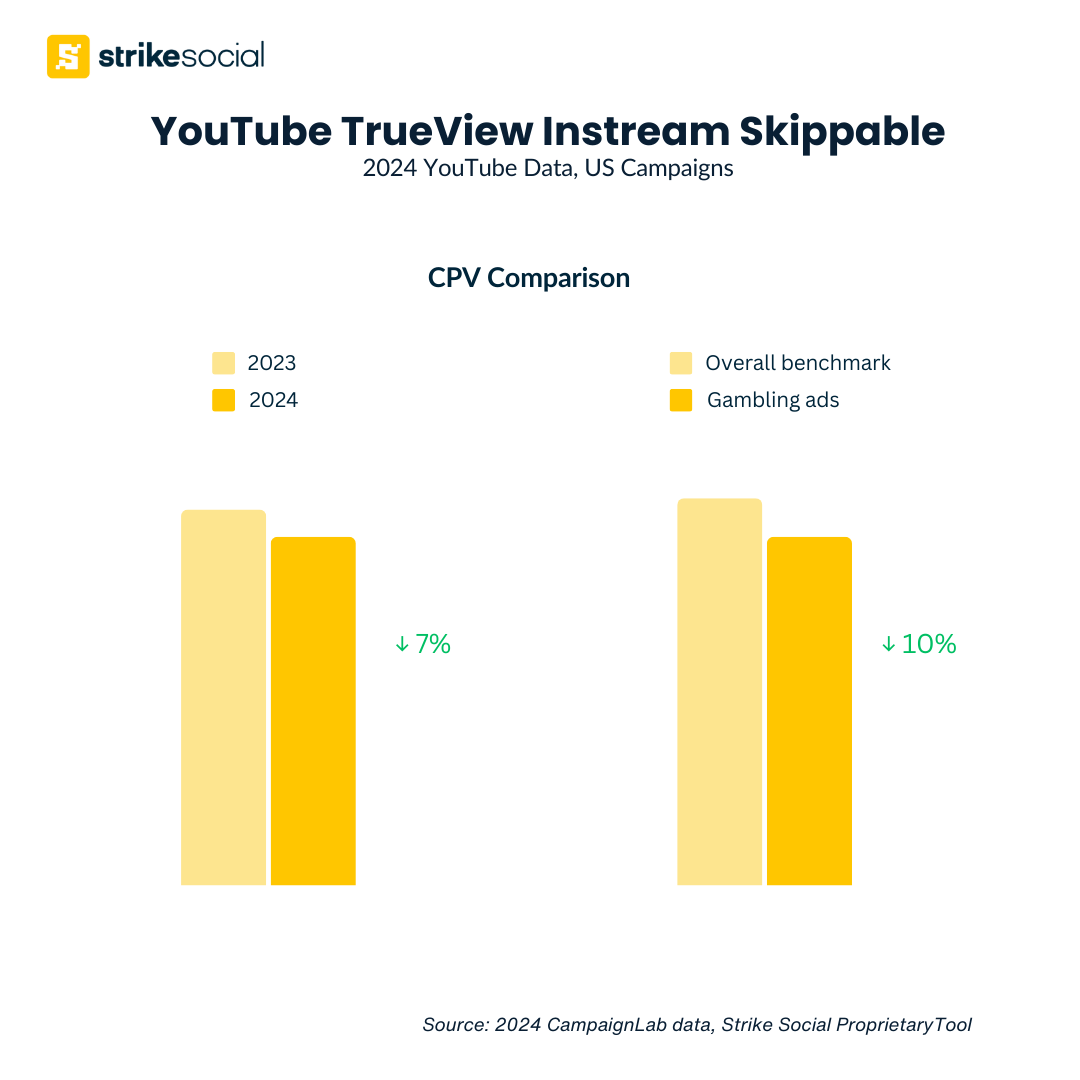
The data from YouTube’s Q1 2024 TrueView Instream Skippable campaigns reveals that gambling ads achieve a 10% lower CPV compared to the overall 2023 benchmarks of our US campaigns. Additionally, CPV for online gambling ads experienced a further 7% reduction, indicating a continued efficiency in cost-effectiveness.
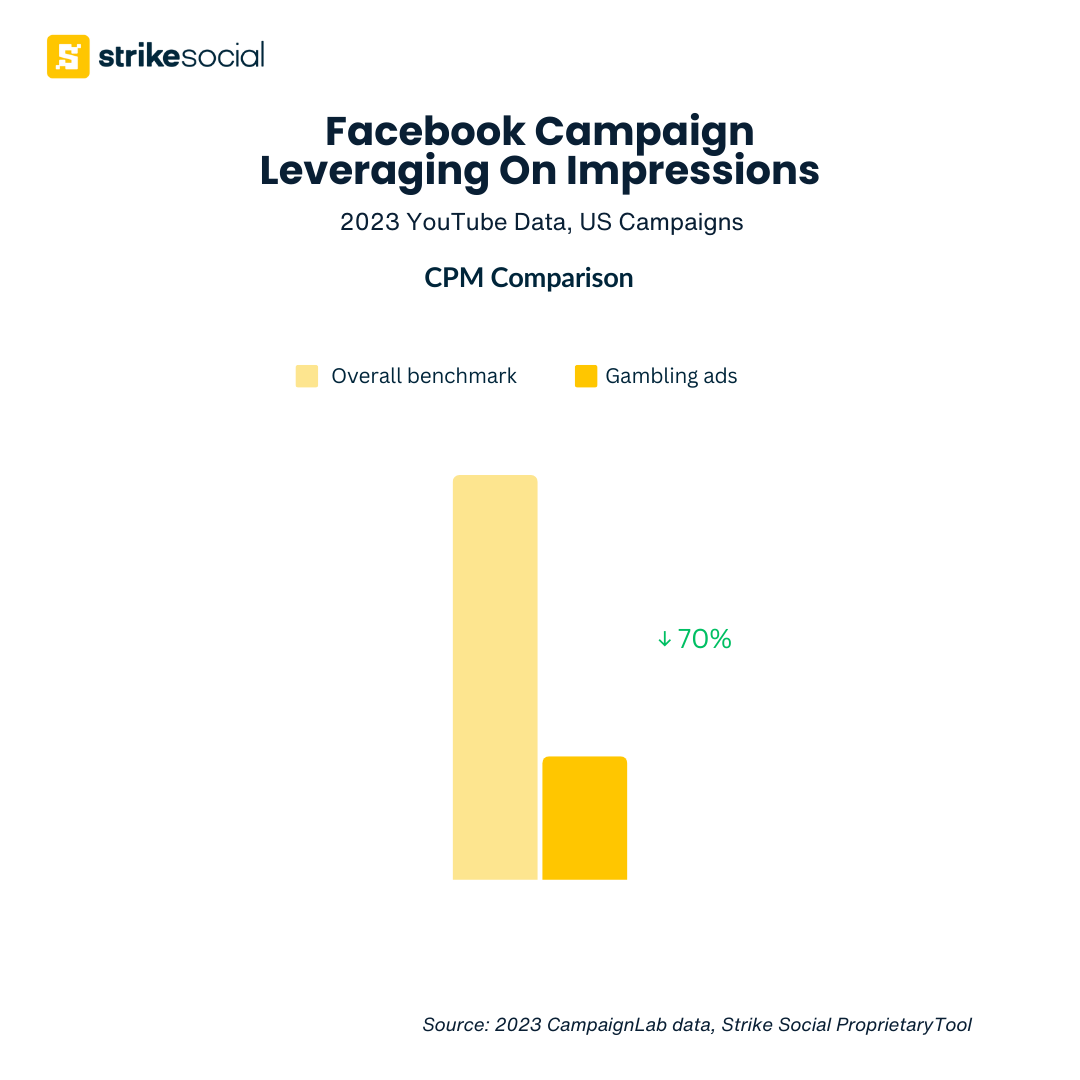
In Facebook campaigns utilizing the Impressions objective, the CPM for gambling ads is strikingly 70% lower than our US campaign benchmark. This stark contrast highlights the potential efficiency that your sports betting ads can attain through paid social media advertising platforms.
Get Your Sports Betting Ads In The Game
Regardless of the restrictions surrounding advertising sports betting on social media platforms, it’s clear that there are strategies to leverage the excitement and expansive reach available through this channel. With numerous upcoming sports events, social media advertising offers a prime opportunity to get your sports gambling ads seen.
Reach out to our team to discover additional ways to capitalize on paid social media advertising to enhance your sports betting campaigns.


